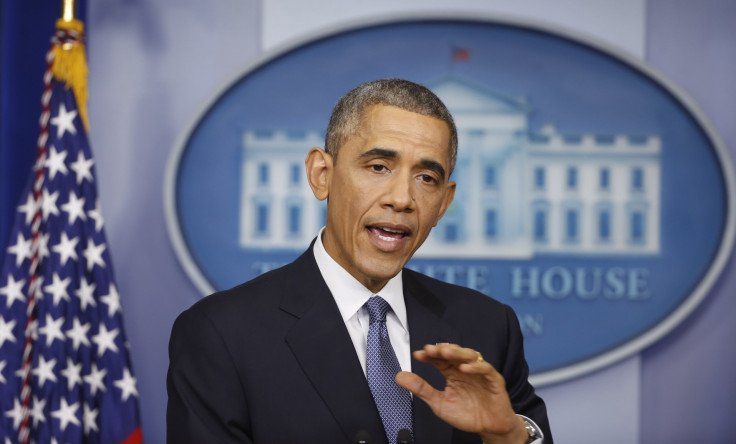President Obama: Sony 'Made A Mistake' By Bowing To Hacker Demands On 'The Interview,' Promises, 'We Will Respond'

U.S. President Obama said Sony Pictures Entertainment made a mistake by canceling the release of “The Interview,” the film widely believed to have inspired the vast hack that crippled the studio and leaked embarrassing emails from its executives. His remarks came days after Sony canceled the planned Christmas Day release of the film, in which bumbling journalists attempt to assassinate North Korean leader Kim Jong Un.
“We cannot have a society where some dictator someplace can start imposing censorship in the United States,” Obama said Friday at his end-of-the-year press conference. “If somebody is able to intimidate folks out of seeing a satirical movie, imagine what they’re going to start doing if they see a documentary they don’t like, or news reports they don’t like.”
The President's statements came hours after the Federal Bureau of Investigation pointed the finger at North Korea and said the hackers responsible also had help from China. While acknowledging that Sony suffered “significant damage” and that employees were threatened, Obama said he "wish[ed] they had spoken to me first" before deciding to cancel the film's release.
North Korea has been believed to be behind the attack almost since it started weeks ago, motivated by the scheduled release of “The Interview,” starring Seth Rogen and James Franco as American journalists who travel to the isolated nation with the aim of assassinating the country’s leader.
“I think it says something interesting about North Korea that they decided to have the state mount an all-out assault on a movie studio because of a movie starring Seth Rogen and James Franco,” Obama said Friday. “I love Seth and I love James. But the notion that that was a threat to them gives you a sense of the regime we’re talking about here.”
In his first interview since the hack began, Sony Pictures CEO Michael Lynton denied the studio caved to any threats; rather, he said, it was the theater exhibitors that forced Sony to pull the film. Five of the nations top theater chains said they would not show the film.
"The president, the press, and the public are mistaken as to what actually happened," Lynton said on CNN. "We do not own movie theaters. We cannot determine whether or not a movie will be played in movie theaters."
Reiterating an earlier statement by the White House, Obama promised a response but declined to give specifics as to what that would look like. "They caused a lot of damage and we will respond," he said. "We will respond proportionally and in a place and manner we choose."
In his remarks, the President invoked the City of Boston, which decided to go ahead with the Boston Marathon this year, after the deadly bombing attack that devastated last year's event. On caving to hacker demands, Obama said, “Let’s not get into that way of doing business.”
“Part of the problem is we have weak states that can wage these attacks,” he said, calling on Congress to pass a bill that would allow information-sharing between governments on cyberattacks.
© Copyright IBTimes 2025. All rights reserved.





















